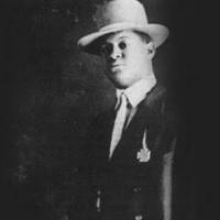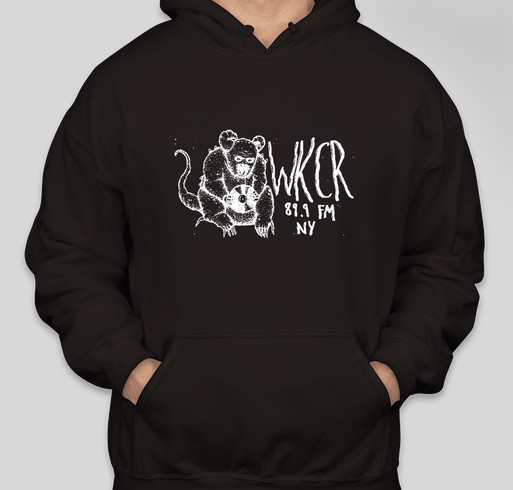
Tune in Wednesday evening from 6-9 PM to hear this week’s edition of the Musician’s Show, which will feature a live broadcast of the Freddie Keppard Discographical symposium taking place at Lincoln Center's Swing University. Phil Schaap will moderate a panel consisting of Jon Faddis, Jon-Erik Kellso, Terry Waldo, and Ben Young.
FREDDIE KEPPARD
Pioneering New Orleans musician Freddie Keppard, a fantastic trumpeter/cornetist in the early days of Jazz (born February 27, 1890), starred in some of the Crescent City’s most prominent Jazz bands and swinging marching bands while still in his teens. By 1914, Freddie Keppard had left his hometown and joined the Creole Band. The Creole Band’s triumphs on various vaudeville circuits in the middle of the 20th Century’s second decade are as pivotal as any other factor in bringing the new music, Jazz, to a vast public outside of its birthplace. And Freddie Keppard was undoubtedly the Creole Band’s most potent player.
Keppard’s contemporaries commented on the brass player’s virtuosity, a handsome tone, stunning dynamic control, swing, and invention. Yet for all of his Jazz trumpet majesty, King Keppard never played an improvised solo. His adlibbing, passionate and persuasive, took place within the ensemble. Keppard took his prominence into some of Jazz’s initial Big Bands, providing the same kind of lift that, later, Louis Armstrong provided to Fletcher Henderson and Bix Beiderbecke gave Paul Whiteman – even without doing what Satchmo’s and Bix would do: playing fully developed stand-alone improvisations.
By 1918, Freddie Keppard had settled in Chicago. There, at least initially, Keppard dominated the various Jazz musicians who, as part of The Great Migration of African Americans from the South, were making the Windy City the new Capital of Jazz. The bulk of Freddie Keppard’s documentable work in Chicago was as the hot spark plug to Doc Cook’s Dreamland Orchestra, a Jazz Age Big Band with a good gig. He appears to have left the group by 1926, which may have been a career move, but by then Keppard’s long-term drinking was starting to affect his professional status and, most likely, his health. His decline was doubtless further set back by the onslaught of the Great Depression.
Freddie Keppard died at age 43 on July 15, 1933.
LAWRENCE GUSHEE
Tonight’s Freddie Keppard Discographical Symposium is dedicated to and honors the memory of Lawrence Arthur “Larry” Gushee who died early this year at the age of 83. Lawrence Gushee taught a broad range of musical subjects at the University of Illinois, Urbana-Champaign, the University of Wisconsin at Madison, and at Yale University. It was at Yale, that Professor Gushee received his doctorate in 1959. As a young practitioner and enthusiast of pre-BeBop Jazz, Larry Gushee became intensely focused on the very first Jazz as was played in late 19th and early 20th Century New Orleans. This profound and also loving interest became Lawrence Gushee’s Jazz specialty. Freddie Keppard became a central figure in Larry’s research. Musical substance and wise reasoning are always on display in Gushee’s thorough accounts of Keppard and his known recordings. The highlights are Lawrence Gushee’s album notes to the Smithsonian Collection’s “FREDDIE KEPPARD: Legendary New Orleans Cornet,” and his magnum opus, the book PIONEERS OF JAZZ: The Story of the Creole Band.
SWING UNIVERSITY
Swing University allows Jazz at Lincoln Center to provide an example of what Jazz Music Appreciation truly is and hopefully it serves as the model for other Jazz organizations, schools, and educators. But please note that Swing University courses are for fun and they are fun! Participants have an extremely good time as Swing University’s professors provide insight into Jazz.
As Swing University’s academic head, Phil Schaap, will undoubtedly point out during this evening, no Swing University course or single class will exhibit the depth and purposes of our Freddie Keppard Discographical Symposium. The Keppard event, however, will exhibit to attendees a high octane formula to the joy of Jazz listening and understanding.
PHIL SCHAAP – Presenter and Moderator
Phil Schaap has broadcast Jazz on the radio for over 45 years. Most familiar, perhaps, is his daily show “Bird Flight” on Charlie Parker heard on WKCR. Phil Schaap has been involved with Jazz at Lincoln Center since its inception in 1987 and has been its Curator since 2000. Upon becoming Curator at Jazz at Lincoln Center Phil Schaap left a successful career producing, remastering, and writing for record companies such as Columbia, Savoy, and Verve. Schaap productions garnered many Grammies including 3 for producing, 3 for historical writing, and two for audio engineering. As an educator Phil has taught Jazz previously at the graduate level at Columbia and Rutgers. Schaap’s undergraduate teaching career was highlighted by his 14 years at Princeton. Today, Phil teaches at the Graduate School at Juilliard and runs Swing University for Jazz at Lincoln Center.
Our Panelists:
JON FADDIS
Born in 1953, Faddis began playing trumpet at age seven, inspired by an appearance by Louis Armstrong on the Ed Sullivan Show. As a young teen, Jon met Dizzy Gillespie at the Monterey Jazz Festival. Soon Faddis was sitting in with Gillespie; their bonding led to one of Jazz’s most remarkable friendships. Two days before his 18th birthday, Faddis joined Lionel Hampton’s band as a featured soloist, moving from Oakland, CA to New York. Shortly after, he became lead trumpeter for the Thad Jones/Mel Lewis Orchestra, touring the world. He soon formed his own quartet, and began directing orchestras, including the Grammy-winning United Nation Orchestra, the Dizzy Gillespie 70th Birthday Big Band, the Dizzy Gillespie Alumni All-Stars, the Carnegie Hall Jazz Band (1992-2002), the Chicago Jazz Ensemble (2004-2010), and the Jon Faddis Jazz Orchestra of New York (2003-present). Faddis has also served as guest conductor and featured soloist with the Jazz at Lincoln Center Jazz Orchestra. Professor Jon Faddis is a master educator and currently teaches at Purchase College. Swing University has been able to borrow Jon for a course or two every couple years and we know how lucky we are.
JON-ERIK KELLSO
Trumpeter Jon-Erik Kellso, born 1964, started playing early! Jon-Erik was in a big band at age 11, in the International Youth Symphony at age 13, and in a concert alongside cornetist Wild Bill Davison at age 17. Kellso played with a wide variety of groups in his native Detroit, including the J.C. Heard Orchestra. Since moving to New York City in 1989 to join Vince Giordano's Nighthawks, Jon has performed and recorded with: Howard Alden, Dan Barrett, Kenny Davern, Wycliffe Gordon, Marty Grosz, Bob Haggart, Levon Helm, Milt Hinton, Dick Hyman, Wynton Marsalis, Ken Peplowski, Leon Redbone, Linda Ronstadt, and Catherine Russell. Jon-Erik can be seen and heard in his movie appearances that include “The Aviator”, “Ghost World”, and “The Good Sheppard”. As a member of Giordano’s Nighthawks, Kellso was a regular on TV’s “Boardwalk Empire”. There have been many radio appearances on Garrison Keillor's "A Prairie Home Companion". Jon is on well over a hundred CDs, including five as a leader. Besides his continuing gig at the Iguana with Vince Giordano’s Nighthawks, Jon-Erik Kellso leads the EarRegulars at the Ear Inn.
TERRY WALDO
Terry Waldo is considered one of America’s premier performers and presenters of Ragtime and Early Jazz. Known for his virtuoso ragtime and stride piano playing, charming vocals, and disarming wit, he is the protégé of the legendary Eubie Blake, who called Waldo “an extension of my own musical self.” Waldo has appeared in concerts worldwide, including the Grand Parade du Jazz in Venice, George Wein’s JVC Jazz Festival at Carnegie Hall, the New York Pops at Carnegie Hall where he performed the world premier of “The Eubie Blake Concerto”, and Jazz at Lincoln Center. Terry Waldo has performed and composed for many TV programs and films including, The Tonight Show, the PBS Documentary, Storyville: The Naked Dance and Ken Burns’ PBS documentary, Unforgivable Blackness: The Rise and Fall of Jack Johnson. His This is Ragtime, republished by Jazz at Lincoln Center Library Editions, is the definitive book on the subject. Says Wynton Marsalis in his introduction to Terry Waldo's book, This is Ragtime, "He teaches Ragtime, he talks about Ragtime, he plays it, he embodies it, he lives it, and he keeps Ragtime alive".
BEN YOUNG
Ben Young is a master of all trades when it comes to getting great music to listeners. Professor Young is an audio engineer, producer (twice Grammy® nominated), author, on-air host, and – of course – a born teacher. Ben Young has been teaching at Swing University for 6 years. Twenty-five years at WKCR – including 10 as Director - have included in-depth study of the avant garde Jazz of the 1960s, focusing on Albert Ayler, Don Cherry, Bill Dixon, Cecil Taylor, and their circles. In addition to widespread work in Jazz reissues, Young has produced cornerstone projects on the music of Ayler, Jimmy Lyons, and the New York Art Quartet. Dixonia, his bio-discography of Dixon was published in 1998 and a forthcoming work proposes to be the definitive treatment of Taylor’s life and career.
FREDDIE KEPPARD DISCOGRAPHICAL SYMPOSIUM
Lawrence Gushee’s lifetime of listening to the earliest Jazz recordings, led him to certify 17 tracks on which Freddie Keppard’s trumpet/cornet can be heard. They are contained in: Doc Cook Big Band sessions of January 21, 1924 and July 10, 1926; a small group out of the Cook’s orchestra that recorded on June 22, 1926; and Freddie Keppard’s own session in September 1926. Towards the end of his career, Professor Gushee was impressed by Phil Schaap’s methodology of using Keppard’s own date and playing it against other suggested/listed Keppard items to make a determination. Larry proposed to Phil that they, together, revisit the possibility of Freddie Keppard’s presence on the Erskine Tate recordings of June 23, 1923 and the Jasper Taylor date for Paramount in January 1927. Larry Gushee died before an opportunity arouse.
Tonight Phil and our panelists will attempt the task in his memory.
That the Creole Band did not get to make the first Jazz records – and the controversial tales concerning why – remain the only footnote(s) by which Freddie Keppard is remembered in Jazz texts, if he is mentioned at all. Jazz at Lincoln Center and Swing University accepts tonight’s honoree’s, the late Lawrence Gushee, analysis of this lost opportunity. Professor Gushee helped document Freddie Keppard’s essential role in the Creole Band’s turning down a chance to make the first Jazz records. Keppard thought that it was ridiculous to make for free the test recording that Victor would demand of any unsigned artist before making records for commercial release. Using old interviews, Larry believed that the tests, nevertheless, were made. At least two or three Creole Band members stated that they were made and they were found to be technically unsatisfactory. There was also the issue of money. The Creole Band passed on recording. The purpose of this evening’s Freddie Keppard Discographical Symposium is not to further parse this story. We’re here to examine the music that can be heard by the Jazz genius Freddie Keppard, and to provide some form of determination about Keppard’s presence of a few additional recordings on which he is purported to play. Freddie Keppard’s music is a window into how Jazz was first played and why the music, even at first, was great art to be forever significant.
Be sure to tune in!
